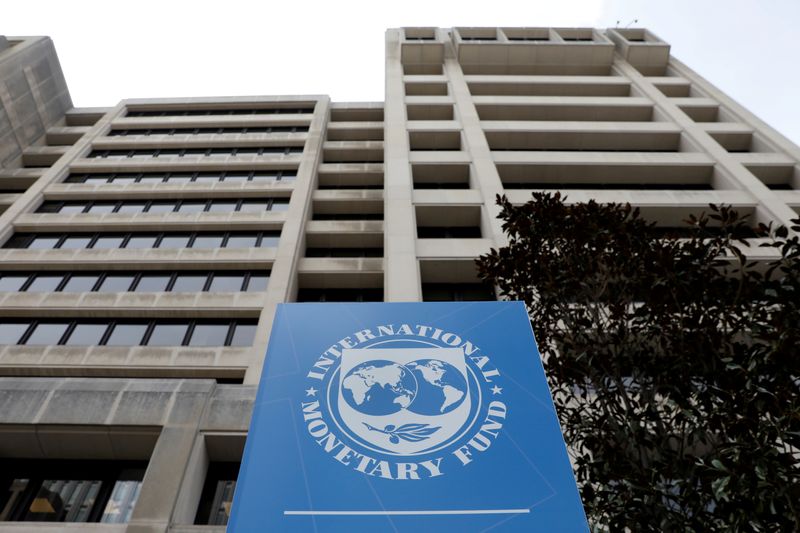WASHINGTON (Reuters) - The International Monetary Fund and the World Bank on Monday said they stood ready to help member countries address the human and economic challenges of the fast-spreading coronavirus outbreak, including through emergency funding.
In a joint statement, the two institutions said they were focused especially on poor countries where health systems are weakest, and urged member countries to strengthen their health surveillance and response systems to contain the virus.
"International cooperation is essential to deal with the health and economic impact of the COVID-19 virus," the statement said, referring to the acronym for the virus. It said both the IMF and World Bank were fully committed to supporting these efforts.
The outbreak is plunging the world economy into its worst downturn since the global financial crisis more than a decade ago, the Organization for Economic Cooperation and Development warned on Monday, urging governments and central banks to fight back to avoid an even steeper slump.
Finance ministers from the world's seven largest economies (G7) are expected to hold a conference call on Tuesday to discuss measures to deal with the economic impact of the coronavirus outbreak, four sources told Reuters.
The IMF said it had an array of facilities and instruments in its tool kit to help countries respond to the economic impact of the coronavirus.
The Rapid Credit Facility (RCF) and Rapid Financing Instrument (RFI), which can provide emergency financial assistance to member countries that can be quickly disbursed, was used in 2016 to help Ecuador after a major earthquake.
The IMF can also augment existing lending programs to accommodate urgent needs related to the outbreak. For instance, it provided extra funds to Guinea, Liberia and Sierra Leone in 2014 to fight the Ebola outbreak.
It also has grants for debt relief that can help the poorest countries address disasters and can provide support through new stand-by financing arrangements. In addition, it can help countries expand their capacity to deal with the outbreak.
On Thursday, IMF spokesman Gerry Rice told reporters that the Fund had not received any requests for assistance.
Somali Finance Minister Abdirahman Duale Beileh told Reuters last week in an interview that many African countries were anxiously monitoring the spread of the flu-like virus, which has infected more than 89,000 people worldwide and killed over 3,000, mostly in China.

"Everybody is concerned. We are just hoping that it doesn't come to us. If that thing comes to Africa, we’re all dead because we don’t have the facilities,” Beileh said on Friday.